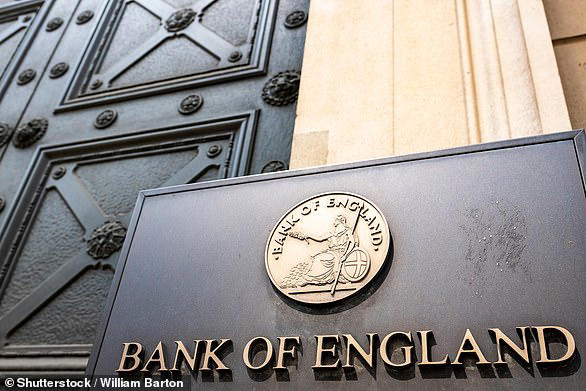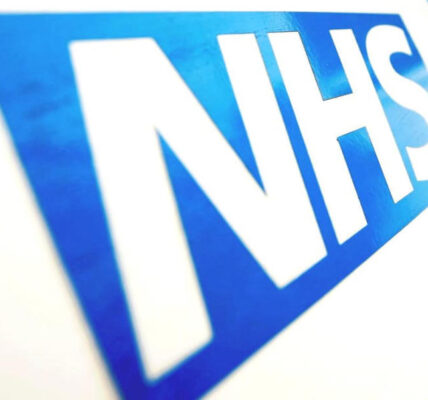Labour Government Tax Rises 2024 could be the tipping point for the UK economy as borrowing costs surge and analysts warn of potential consequences. This blog explores the economic challenges and the impact of rising public sector spending and taxes.

© Wiktor Szymanowicz/Future Publis
Labour Government Tax Rises 2024: A Tipping Point for the UK Economy?
The Labour Government Tax Rises 2024 could mark a critical juncture for the UK economy. With borrowing costs soaring and public spending on the rise, the pressure is mounting on Chancellor Rachel Reeves to find a solution. Analysts are warning that the “clock is ticking” for the government to get a grip on public spending, or the economic outlook could worsen significantly.
Surging Borrowing Costs and Record Tax Collections
In July 2024, the UK saw public sector net borrowing rise to £3.1 billion, an increase of £1.8 billion compared to the same period last year. This figure represents the highest borrowing for July since 2021, according to the Office for National Statistics (ONS). Despite this, HM Revenue and Customs (HMRC) collected a record £82.5 billion in taxes for the month, surpassing the previous year’s collection of £81.3 billion.
While these figures might suggest strong revenue generation, the combination of rising borrowing and potential Labour Government Tax Rises 2024 has analysts concerned about the trajectory of the UK economy. The increased tax burden could drive wealthy individuals and large companies out of the country, leading to a decline in the very tax income that the government relies on.
Impact of Public Sector Pay Rises
The latest borrowing figures are particularly concerning given the Labour Government’s recent confirmation of public sector pay increases. These pay rises are contributing to the surge in borrowing, as highlighted by the OBR. The overshoot in borrowing compared to OBR forecasts is partly attributed to the strong growth in public sector pay.
Joe Neal, a manager at financial services firm Blick Rothenberg, emphasized that further Labour Government Tax Rises 2024 could be on the horizon. He noted that the government has acknowledged that the amount of spending needed is “much worse than expected.” This acknowledgment has fueled expectations that additional tax hikes will be announced in the October budget. Such increases could be the tipping point that pushes high-net-worth individuals and large corporations to relocate, thereby reducing the UK’s tax base.
Borrowing Figures and Economic Forecasts
The borrowing figures for July 2024 were £3 billion higher than the Office for Budget Responsibility (OBR) had projected, and significantly above the £1.1 billion forecast by most economists. For the financial year from March to July, total borrowing reached £51.4 billion, slightly less than the same period last year but still alarmingly high. In fact, this marks the fourth highest year-to-July borrowing since monthly records began in January 1993.
Despite a revision of June’s borrowing figures, which were lowered to £13.5 billion from £14.5 billion, the overall borrowing trend remains worrisome. These figures raise concerns about the effectiveness of the government’s fiscal policies and the potential impact of Labour Government Tax Rises 2024.
Challenges Facing Chancellor Rachel Reeves
Since taking over the Treasury, Chancellor Rachel Reeves has pledged to tackle excess public spending and reduce the tax burden on Britons. However, the economic challenges she faces are formidable. The latest borrowing figures, combined with the rising costs of public sector pay and other spending pressures, suggest that Reeves will need to make difficult decisions in the upcoming October budget.
The OBR has warned that the overshoot in borrowing, particularly due to public sector pay growth, could have long-term implications. As the government prepares for the budget, the likelihood of additional Labour Government Tax Rises 2024 looms large. These tax hikes could have significant consequences for the economy, particularly if they lead to an exodus of wealth and businesses from the UK.

© GB News
Public Reaction and Economic Concerns
The public is also growing increasingly concerned about the government’s handling of the economy. John O’Connell, chief executive of the TaxPayers’ Alliance, cautioned that time is running out for Reeves to address the UK’s economic challenges. He criticized the government’s prioritization of public sector pay hikes over economic prudence, warning that taxpayers are becoming disillusioned.
“The clock is ticking on this government to deal with our crippling debt and prove that they’re on the side of hardworking families,” O’Connell said. This sentiment reflects the growing unease among taxpayers who are already feeling the strain of the existing tax burden. The prospect of further Labour Government Tax Rises 2024 only adds to these concerns.
Economic Growth: A Silver Lining?
Despite the challenges, there has been some positive news on the economic front. The UK’s gross domestic product (GDP) increased by 0.6 percent between April and June, offering a glimmer of hope for the economy. However, economists are cautious about whether this growth will be enough to counterbalance the impact of rising borrowing costs and potential Labour Government Tax Rises 2024.
Isabel Stockton, senior research economist at the Institute for Fiscal Studies, noted that while the better-than-expected growth figures are encouraging, they may not be sufficient to save Reeves from making tough decisions in her first budget. The spending pressures identified in last month’s spending audit, combined with ongoing challenges in public services, suggest that the upcoming spending review for 2025-26 will be particularly difficult.
Looking Ahead: The October Budget
As the October budget approaches, all eyes will be on Chancellor Rachel Reeves and the Labour Government. The decisions made in this budget will have far-reaching implications for the UK economy. With borrowing costs rising and the potential for further Labour Government Tax Rises 2024, the stakes are high.
The government must balance the need to address public sector spending with the imperative to maintain economic stability. Failure to do so could result in significant economic fallout, including the loss of high-net-worth individuals and businesses that are critical to the UK’s tax revenue.
Conclusion
The Labour Government Tax Rises 2024 represent a pivotal moment for the UK economy. As borrowing costs surge and public sector spending continues to rise, the government faces difficult choices. The October budget will be a crucial test for Chancellor Rachel Reeves and the Labour Government. Whether they can navigate these challenges and avoid tipping the economy into deeper trouble remains to be seen. The clock is ticking, and the stakes could not be higher.
ALSO READ:
Waspi Pension Compensation: 5 Shocking Failures by the Government



1 COMMENTS